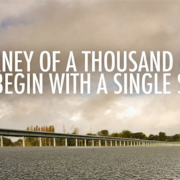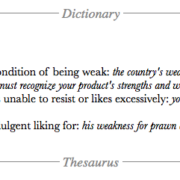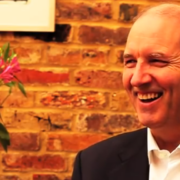THE LIGHT BULB MOMENT – Challenge yourself by asking the right questions
After one of my recent public speaking events a member of the audience gave me some feedback – which incidentally is always welcome – how else can I adjust my sights? The point he raised actually goes to the core of coaching, and the quest of personal development in general:
“I thought you were going to be giving some answers”.
That fact that I am often quizzed on a wide variety of life strategy issues highlights our fundamental need, as humans, to search for answers. Nowadays there are the added imperatives of wanting answers right now, on tap, and the simpler the better – an impatience that is hardly surprising given the spirit of our age.
WHO DOES HAVE THE ANSWERS?
Of course I, like everyone else, have loads of answers, but they are mine, applicable to my life and my issues, and are of absolutely no use to anyone else whatsoever. The fact is, the best person to provide answers for your life is you. However, in creating positive lasting change, the greatest challenge is not actually in finding the answers as we already have them within us in abundance. The real issue is to find the right questions as it is through them that our answers will become apparent.
“It is not the answer that enlightens, but the question.”
Eugene Ionesco
THE LIGHT BULB MOMENT
The need for asking the right questions is all about reaching that light bulb moment I see so often in my clients. One of the most frequent statements from those I work with is “I’ve never looked at it like that before”. The realization that we already possess our own solutions is both very dynamic and immensely empowering. We have the answers all along – but often we are just not able to challenge ourselves.
THE RIGHT QUESTIONS:
- Challenge our perspectives and test our thinking
- Can make us look more critically at the way we do things and the way we view ourselves and our world.
When I say critically, I mean in the most positive and constructive sense – after all, we cannot build anything lasting upon negative foundations.
“We cannot solve our problems
with the same thinking we used when we created them.”
Albert Einstein
IT DOES NOT END WITH THE QUESTION
Whether in a private one to one session or speaking to large groups, my work is all about challenging people’s existing thinking and perceptions – and my principle asset for that is posing questions and then waiting for the answer. Waiting for answers is equally important for individuals planning their own life strategy: do not rummage around looking for them. Allow calm and space to do the work and if the answer is a natural fit, it will come to you and, quite simply, it will feel right.
Alan Keyse is a fully qualified Business and Life Coach who now applies his 30 years of experience as a sales executive to coaching Emotional Intelligence to business leaders, executives, managers and their staff. Alan specialises in stress reduction; conflict management; low self confidence & employee engagement.









